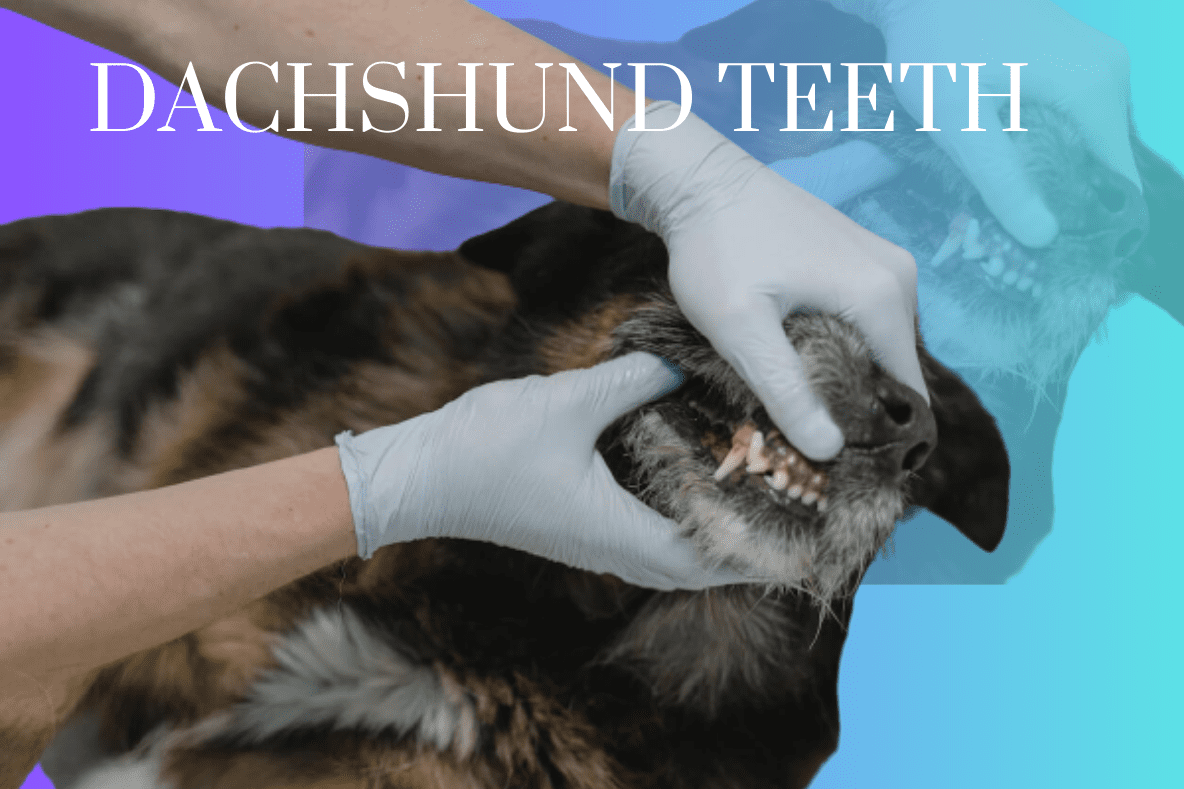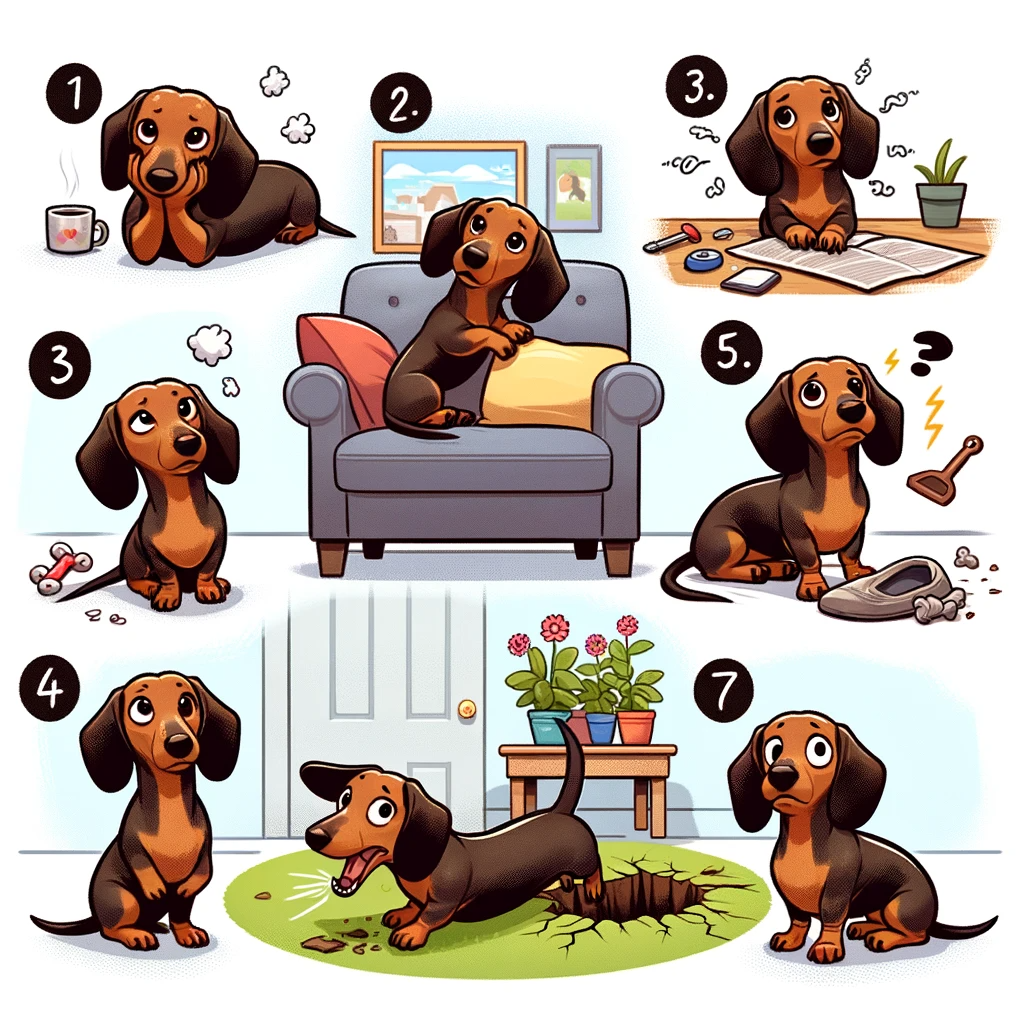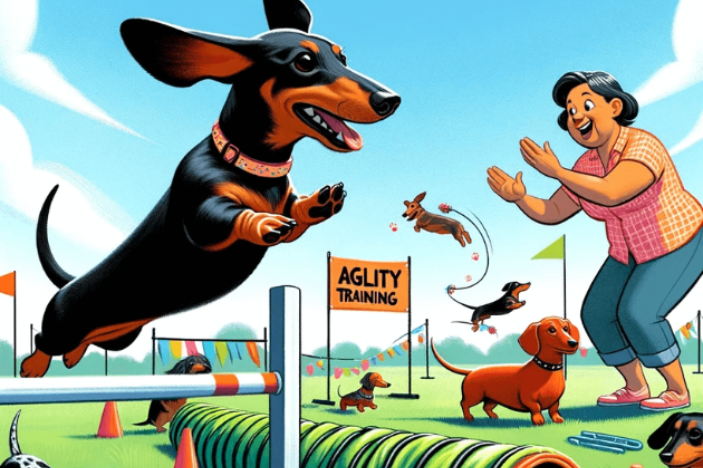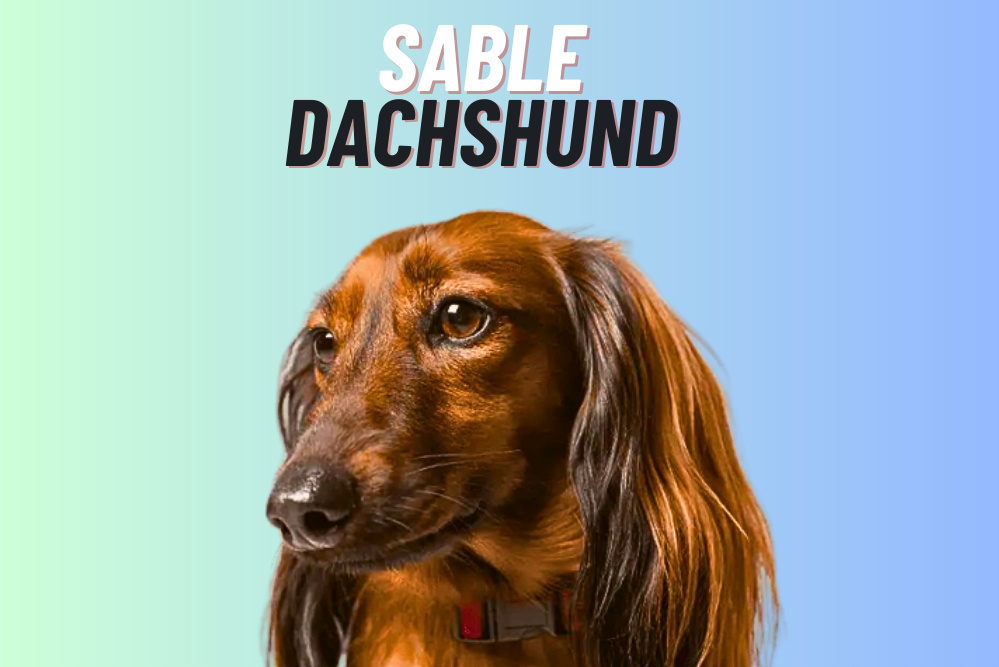Dachshund Teeth
Dachshunds, like most dogs, typically have 42 teeth in total. They have 20 upper teeth and 22 lower teeth, including incisors and premolars. The age of eruption for their teeth is typically between 3-6 months.
The primary function of their teeth is to chew and grind food. However, dental problems such as periodontal disease and tooth decay can occur in dogs, including dachshunds. It is important to take care of your dog’s teeth by providing them with chew toys and regular teeth cleanings to prevent these issues.
Dachshunds typically begin losing their baby teeth and gaining their adult teeth around 3-4 months of age, with the process being complete by around 7 months old. During this time, they may experience some discomfort and may benefit from chew toys or something cold and icy to chew on.
If a dog’s teeth become severely damaged or infected, a veterinarian may need to pull the tooth to prevent further health issues. The incisors, premolars, and canines are considered the most important teeth for a dog’s eating and chewing abilities.
While dogs can live without their teeth, it can impact their ability to eat and digest food properly. Therefore, it is important to take care of your dog’s teeth and address any dental issues as soon as possible
Dachshund Upper Teeth
As for their upper teeth specifically, dachshunds have 6 incisors, 2 canine teeth, 8 premolars, and 4 molars on their upper jaw.
The incisors are the small, sharp teeth at the front of their mouth that they use for biting and picking up food.
The canine teeth are the larger, pointed teeth next to the incisors, which they use for tearing and grasping. The premolars and molars are located toward the back of the mouth and are used for grinding and crushing food.
Dachshund Lower Teeth
Dachshunds, like all dogs, have lower teeth that are used for biting, chewing, and tearing their food. These teeth are called incisors, canines, and premolars, and they are important for maintaining good oral health and overall well-being.
The lower incisors are located in the front of the mouth and are used for grasping and scraping food. The lower canines are located next to the incisors and are used for tearing and shredding food. The lower premolars are located behind the canines and are used for crushing and grinding food.
Age of Eruption
The Age of Eruption teeth is a term used to describe the dentition of certain dog breeds that are particularly prone to tooth decay and other dental problems.
These dog breeds, which include the dachshund, have relatively small molars that are not capable of holding much food in their mouths, which makes them susceptible to tooth decay and other dental problems.
The Age of Eruption teeth is generally seen as a sign that these dog breeds will likely experience more dental problems in the future.
Function
dachshund dog teeth are a must for chewing and swallowing. By definition, canine teeth are the most anterior of all teeth in a dog, and they are also the most important in terms of strength and durability. They can chew hard things like wood and bone.
Dentists typically use two types of tests to determine if a dog has healthy canine teeth: an alveolar test and a molar test. The alveolar test measures how well the tooth fits into the jawbone, while the molar test measures how many molars there are on each side of the tooth.
Incisors
Incisors are the front teeth located in the mouth of dachshunds and many other animals, including dogs like Dachshunds. They are used for biting and cutting food, as well as for other functions such as grooming and defense.
In Dachshunds, there are six lower incisors located in the front of the mouth, three on each side of the jaw. These teeth are small and narrow, with a sharp edge that is used for biting and grasping food. The upper jaw of Dachshunds also has six incisors, but they are larger than the lower ones.
Maintaining good dental hygiene for your Dachshund’s incisors is important for their overall health and well-being. Regular brushing, dental checkups with a veterinarian, and providing appropriate chew toys can help prevent dental problems such as tartar buildup, gum disease, and tooth decay
Premolars
Premolars are the teeth located behind the canine teeth in the mouth of Dachshunds and many other mammals, including dachshunds. They are larger and stronger than the incisors and canines and are used for grinding, crushing, and tearing food.
In Dachshunds, there are four premolars on each side of the upper jaw and lower jaw, for a total of sixteen premolars in the mouth. The premolars have a flat, rough surface with ridges and cusps that help grind and break down food before it is swallowed.
Maintaining good dental hygiene for your Dachshund’s premolars is important for their overall health and well-being. Regular brushing, dental checkups with a veterinarian, and providing appropriate chew toys can help prevent dental problems such as tartar buildup, gum disease, and tooth decay.
Why do dachshunds Lose Teeth?
Dachshunds, like all dogs, lose their baby teeth (deciduous teeth) as they grow and develop their adult teeth. The process of losing baby teeth and growing adult teeth is known as teething.
Dachshunds typically start losing their baby teeth at around 3-4 months of age and have all their adult teeth by 6-7 months of age. During this time, the roots of the baby teeth dissolve, and the teeth fall out, making room for the adult teeth to emerge.
Sometimes, however, Dachshunds can lose their adult teeth due to injury, infection, or periodontal disease. These issues can cause tooth loss, gum inflammation, and pain, making it difficult for your Dachshund to eat and drink normally.
To prevent tooth loss in adult Dachshunds, it’s important to maintain good dental hygiene and to take them for regular dental checkups. Brushing their teeth regularly, providing appropriate chew toys, and feeding a healthy, balanced diet can also help promote good dental health and prevent tooth loss
Periodontal Disease
There are various reasons why periodontal infection is a particularly important problem. The basic explanation is that everyone needs teeth to eat properly. Without teeth, we would have to go without many of the foods that we enjoy.
Periodontal disease can cause a lot of problems for people who have them, and it’s one of the most common causes of death in adults. It can likewise lead to various problems, for example, arthritis, which can be really bad.
Tooth Decay
Tooth decay is a common problem that can be caused by brushing your teeth too hard or eating too hard food. If you are not careful, you can develop plaque and bacteria on your tooth enamel, which will lead to tooth decay.
This can cause the teeth to become loose and fall out, which can make it difficult to get them fixed. To prevent this from happening, it is important to brush your teeth twice a day and floss every day. You should also try to avoid eating processed foods and drinks, as they may contain sugar that can help promote tooth decay.
What do I do when my dachshund is teething?
Dachshund chew toys are a great way to keep your dog entertained while they’re teething. They come in different shapes and sizes, so you can find one that is ideal for your little guy. Plus, they make good exercise for them as well – chew toys help promote healthy teeth and gums.
One good option is a toy designed specifically for dachshunds, such as a bone puzzle or kibble toy. Another option is a soft toy that articulates and provides entertainment for your furry friend. Be sure to keep your dachshund’s Teething Toy safe and unused, or you may end up having to get new ones every time he starts to chew on it!
Give your dachshund something cold and icy
It’s important to give your dachshund something cold and icy when they’re teething because it can help to reduce the amount of saliva that is being produced. Additionally, it can also help to stop them from choking on their food.
Dachshunds are known for being hardy little creatures, but they can be a little teething trouble. If your dachshund is starting to chew on things like toys and food, it might be best to give them something cold and icy to help ease the pain. This will also help stop any damage from happening.
At what age do dachshunds lose their teeth?
Dachshunds are a popular breed in Europe. They get their name from the German “Dachshund” meaning dog of the house.
Dachshunds were initially reproduced to be working dachshunds, but now presents many individuals additionally keep them as pets.
Many dachshunds have lost their teeth by age 5 or 6, but some do still have them. The average lifespan for a dachshund is 10-12 years.
Are dachshunds prone to dental problems?
Dachshunds can also be prone to dental problems. Some of the most common dental problems in dachshunds include teeth that become loose or rotten, bad breath, and chronic issues with their front teeth. If left untreated, these problems can lead to serious medical conditions for the canine.
Dental problems are common in dogs, and they can be a lot more serious than in people. In fact, dachshunds are particularly prone to dental problems because of their small size and lack of teeth. This can make them at risk for dozens of different dental problems, including:
- Joint issues
- Teeth that get knocked out
- Dentures
- Permanent or semi-permanent changes to the jaws
Why do vets pull dogs’ teeth?
Veterinarians may need to pull dogs’ teeth for a variety of reasons. Some of the common reasons why a vet may recommend a tooth extraction for a dog include:
- Tooth decay: Just like humans, dogs can suffer from tooth decay, which can lead to infections, pain, and other health issues. If a dog’s tooth is severely decayed, it may need to be extracted to prevent further damage.
- Periodontal disease: This is a common dental condition in dogs, caused by the buildup of plaque and tartar on the teeth. If left untreated, periodontal disease can cause gum inflammation, bone loss, and tooth loss. In some cases, the affected teeth may need to be extracted.
- Trauma: A dog may break or fracture its tooth due to trauma, such as a fall, a car accident, or a fight with another dog. If the tooth is severely damaged or infected, it may need to be extracted.
- Crowding: In some cases, a dog’s teeth may be overcrowded, which can cause alignment issues and other dental problems. In these cases, the vet may recommend extracting one or more teeth to help improve the dog’s dental health.
Overall, tooth extraction is usually considered a last resort, and most veterinarians will try to preserve a dog’s teeth whenever possible. However, in cases where a tooth is causing significant pain or other health problems, extraction may be necessary to help improve the dog’s quality of life.
Which dog teeth are most important?
The most important dog teeth are the front and back teeth. The front tooth is more important because it helps the dog bite and chews food. The back tooth is less important but can help with some of the same tasks as the front tooth.
What if your canine loses his teeth?
If your Dachshund loses its teeth, it can have an impact on its ability to eat, chew, and digest food properly. Losing teeth can also affect their overall dental health and cause pain and discomfort.
If your Dachshund loses its teeth, it’s important to take them to the veterinarian for a dental checkup to evaluate the extent of the damage and to recommend a treatment plan.
Depending on the severity of the tooth loss, the veterinarian may recommend a dental cleaning, extraction, or other treatments to restore your Dachshund’s dental health and improve its quality of life.
In some cases, tooth loss can also be a sign of underlying health problems such as gum disease, infection, or trauma. Therefore, it’s important to schedule regular dental checkups and to maintain good dental hygiene for your Dachshund, including regular brushing and providing appropriate chew toys.
Conclusion.
Dachshunds are prone to dental issues, especially as they age. Their unique skull and jaw structure makes them more susceptible to periodontal disease, tooth decay, and other dental problems.
It is important for Dachshund owners to take proactive measures to care for their pet’s teeth, such as regular brushing, professional cleanings, and providing appropriate chew toys.
Early detection and treatment of dental problems can help prevent more serious health issues down the line. Overall, proper dental care is crucial for maintaining the health and well-being of Dachshunds and should be a top priority for any responsible pet owner.




